Life is a game of chance, a series of lucky breaks and coincidences, cause and effect.
But fuck if we want to talk about it that way.
No, we’re humans. We like patterns. We like stories.
I careened into adulthood while bumbling around at a night club in South Africa, drinking whiskey and puffing endlessly at Peter Stuyvesant cigarettes. I sat at a table of people far more witty and interesting and worldly than I, and I tried and failed, in my young, drunken stupor, to understand how some rural hick fleeing a narrow little town and a failed abusive relationship had somehow ended up here on the other side of the world. I felt like a fake. A poser. A white American girl running around the world for the opposite reason most folks did.
See, I wasn’t running away to find myself. No. Indeed. I knew exactly who I was.
I was trying to run as far and as fast from myself as possible.
I knew that if I stopped running, my past would catch up with me. I’d go back to being the same person I hated, the fat kid with braces and glasses in grade school, the too-smart water buffalo with the bad hair, the obese woman with the ex-military boyfriend threatening to kill her. Who wanted that life? Who wanted to be that person?
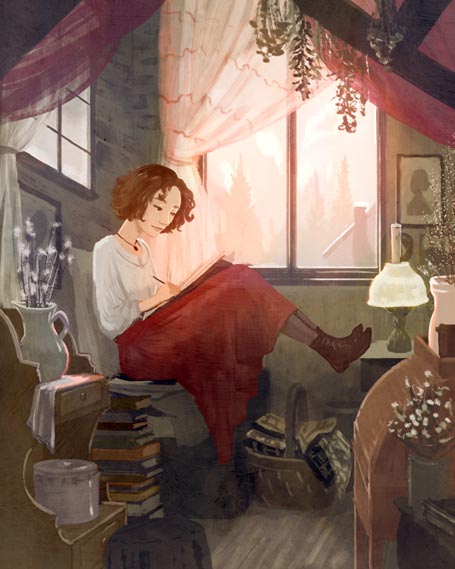
Art by Erin McGuire
I needed to tell another story.
I needed to become someone else.
Even if it meant I never stopped running.
Funny enough, it took nearly dying to shed the final vestiges of this self-hate.
This is my tenth year writing regularly online – and my twentieth writing fiction for publication in more permanent venues. When I first started writing publicly, I talked a lot more about the nuts and bolts of things: I turned day job meetings into rollicking drunken stories, railed on angrily about bad relationships, and told the world exactly what I felt about rejection slips and the industry pros who wrote them. I detailed dating nightmares, and wrote long, exhausted posts on running and boxing my way through overcoming a deep and abiding sense of self-hate.
It’s interesting to look back at it now, that driving sense of hatred that kept me rolling out of bed and powering through workouts even after I started the long, slow decline due to what I would later learn was the onset of a chronic illness.
Funny enough, it took nearly dying to shed the final vestiges of this self-hate. It was not the running, or the punching, the endless calorie-counting; it was not getting a better job, or making more money; it wasn’t the size of my ass or my blog stats.
It was knowing tomorrow I could get hit by a bus. It was knowing that all this corporeal flesh, and all these powerful feelings, meant nothing in the long game. It was all fake. It was all made up. We give it all far more power than it actually has. Real power, the only power, is life or death. You’re here or you’re not. What you choose to do in between is up to you.
That realization was the tipping point, for me.
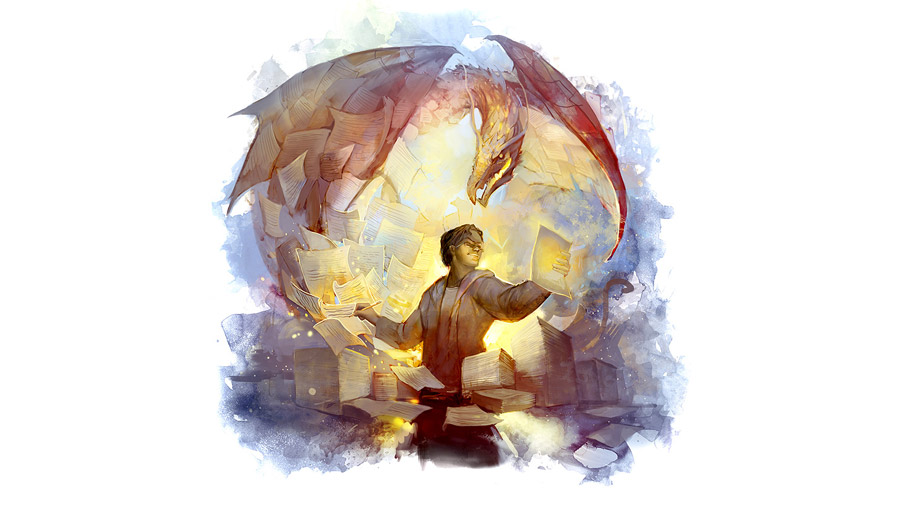
Art by Julie Dillon
I could keep running from the person I used to be. Or I could write another story.
I could keep running from the person I used to be, the fat kid with no confidence who bought every story about how that made her unlovable, worthless, no matter what she accomplished. Or I could write another story. I could list out all these events as they happened to me. I could piece them together and make sense of them.
I could write a better story.
Creating that story of my life through personal essays like this one, and the ones I share in the collection, We Have Always Fought: Essays on Craft, Fiction, and Fandom was a big part of how I transformed my life from being the one everyone wrote for me – the story everyone told me I was – to becoming the person I am.
We are suffused with stories, in media. We’re given visions of people who look like us, maybe – fat people, nerds, geeks, with bad skin and bad hair and bad social skills. And those stories tell us who we are – unlovable, not confident, losers.
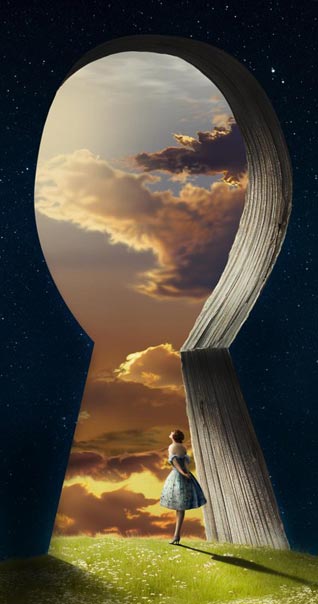
Art by Kinga Britschgi
I decided I was something else. I started to act like someone more confident, someone of worth. I traveled. I wrote. I took risks. I lived loud.
Most importantly: I started to write those stories in my own voice. I created the story of myself. I figured out who I was outside someone else’s story.
But no matter how many stories I told, no matter how much sense I tried to make out of what had gotten me to that bar in South Africa, I couldn’t stop running. Not until death caught up to me.
If I stopped running, I thought, that old person would be there; the weak, petty person who let herself get bullied and shat on, who put up with getting cheated on and talked down to. The one who swallowed all the bullshit people flung when they got horrified about the truth of their own stories.
But as long as I kept running, there were things in my life I wasn’t going to get. Because running fueled by fear means being ruled by fear. While I was running, I wrote some safe fiction. I ran from big ideas and relationships that got too close. I ran from responsibilities and opportunities, because they weighed me down; they slowed me down, and if I slowed down then I’d have to wonder who I would really be when I stopped running.
The extraordinary life I wanted would not come without risks, though: without writing edgy books, and letting partners get close.
Doing that felt too big, back then – insurmountable. But let me tell you… all that? The failure, shame, worry, the disappointment of those around you, the fear of getting hurt so badly that you never get up again? None of that matters when you’re on your death bed, staring at blood flowing freely from your arm as the ER doctor tries to get a line in you.
I came home from that experience weak and bloody and covered in bruises. I was pretty fucked up for a long time.
But I know what to do with being fucked up.
I turn it into a narrative. I paint a picture. Until it becomes narrative, a story, the things that happen to us have no meaning. They are random accidents of fate. Tactical strikes from fickle gods.
My life needed a story. Because the alternative, the randomness, was too much too bear.
So I wrote it.
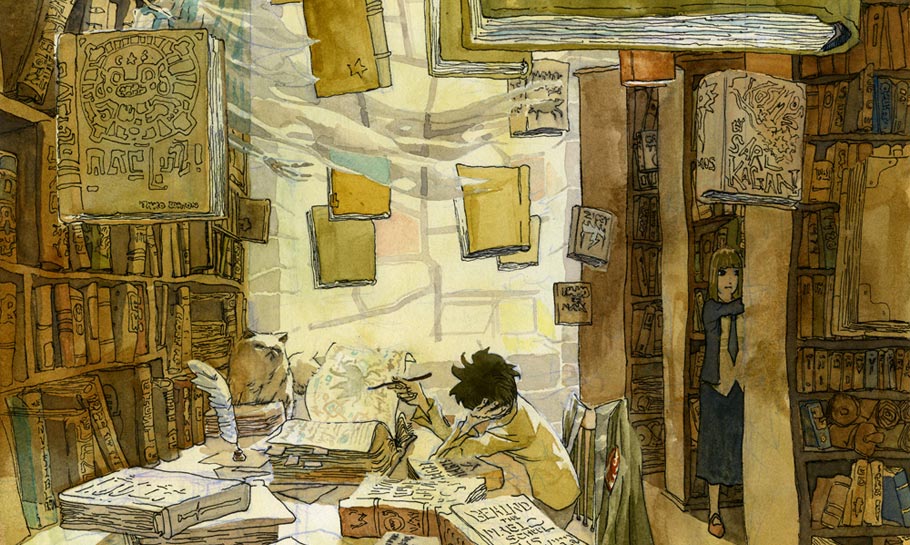
Art by Mr. Meh
That’s how the blogging started. For a long time it was just that – me reacting to what I’d read, the media I’d ingested. I worked to make sense of and challenge the assumptions of the world around me – and the assumptions the world made about me.
But over the last decade, my online ranting has become much more. It’s become a blatant fuck you in the face of people who want to erase people like me, and bundle me up into a neat box. It’s a fuck you in the face of every bully who tried to break me, every story that wrote women out, every magazine article that said love only comes to those who buy enough shoes and mascara.
It’s not so much that I learned we’re more than the sum of other people’s stories about us. It’s that blogging, telling stories, creating these narrative of my own life, made me realize that we are the stories we tell ourselves.
As long as I ran from myself, I didn’t have to face myself and my mewling bullshit. It wasn’t until I sat and held death’s hand that I realized it was me creating the mewling bullshit. I was creating this whole horrible image of myself to run from. I wasn’t running from my actual self, but from the story I’d internalized about who I was. Some of that was from media, some from bullies, some from that crazy ex, but it was me who bought into it. Internalized it. Fed it and nurtured it.
Taking control of the story of my life, and what it meant, where it was going, changed everything. I wrote throughout that time, piecing together what had happened to me over the last decade. I realized I could hunt and peck for all the terrible shit, or select for the moments of power and joy.
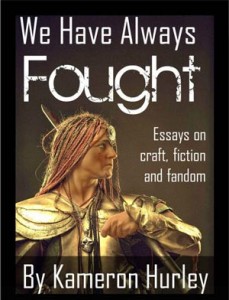
Buy We Have Always Fought by Kameron Hurley: eBook/Free PDF/ePub
Now, when the bad shit goes down in my life, I immediately know I can start building a horror out of it. It can be a shit story about all the mistakes I made, about what a loser I am, about how everything those people said about me is true.
Or I can build something different.
That’s what this essay collection is about: how we build narratives around random events, how we build the stories of ourselves, against incredible odds.
Some days I still feel like an impostor, a know-nothing writer with nothing to say. But I haven’t been that fearful runner in a long, long time.
Now, when I get off my ass to shuffle my feet, it’s because I’m running toward a future I’m building word by word – story by story.
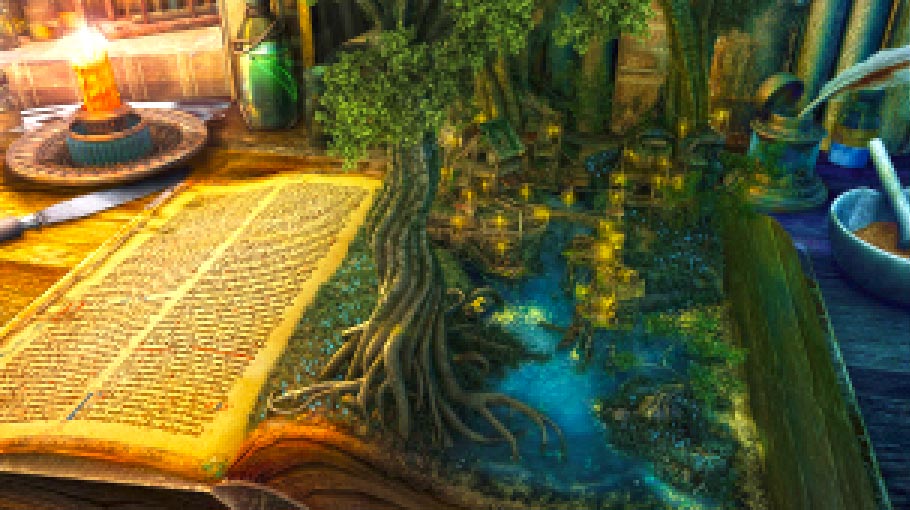


I don’t think imposter syndrome ever goes away, Kameron, but I am glad you haven’t succumbed to it. I look forward to reading many more of your stories.
Thank you.
[…] Stories, then, are ultimately how we define ourselves and others. And the more exposure we have to experiences outside our own, the more we can figure out who we are aside from the narratives already given to us. […]